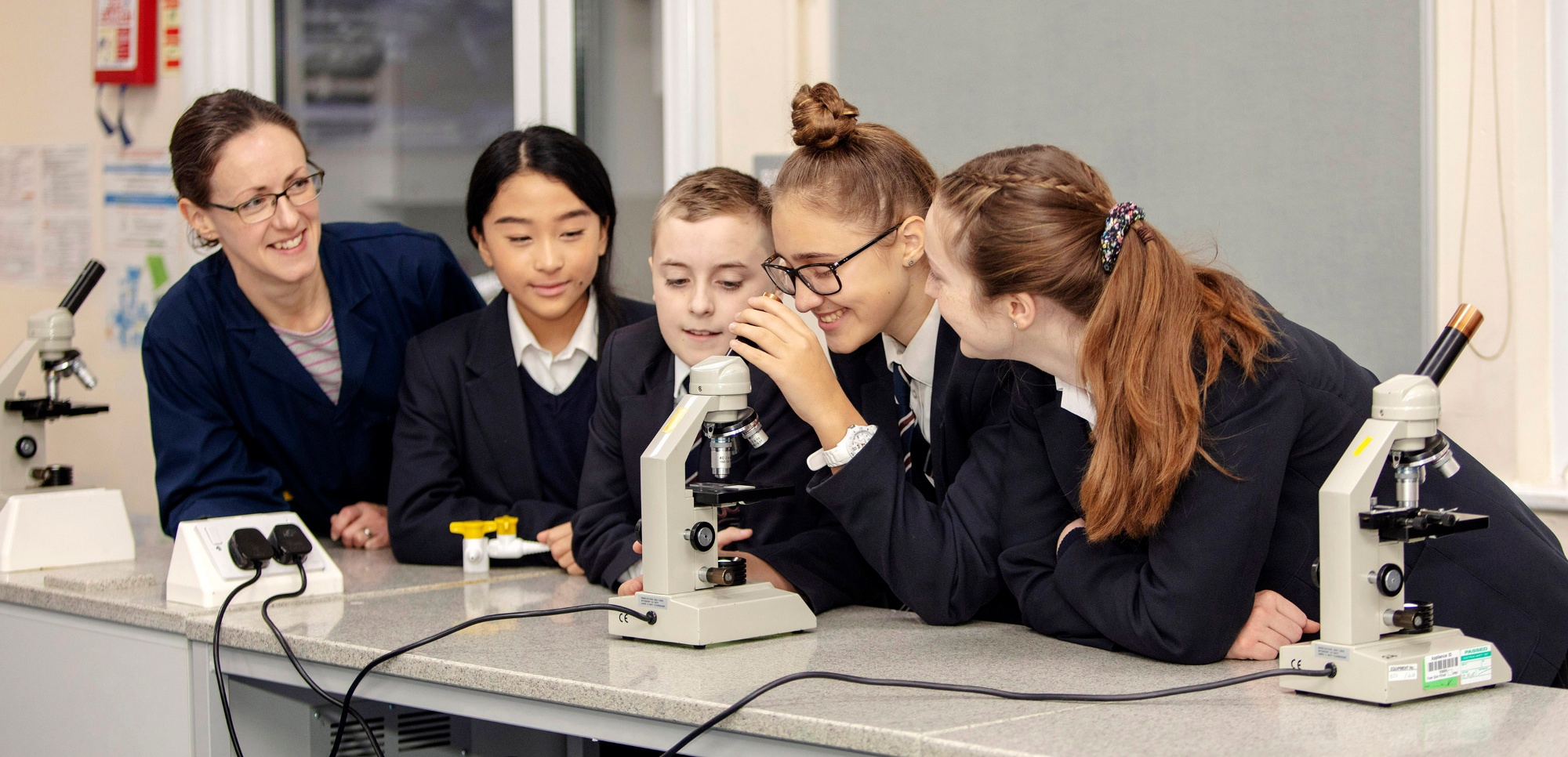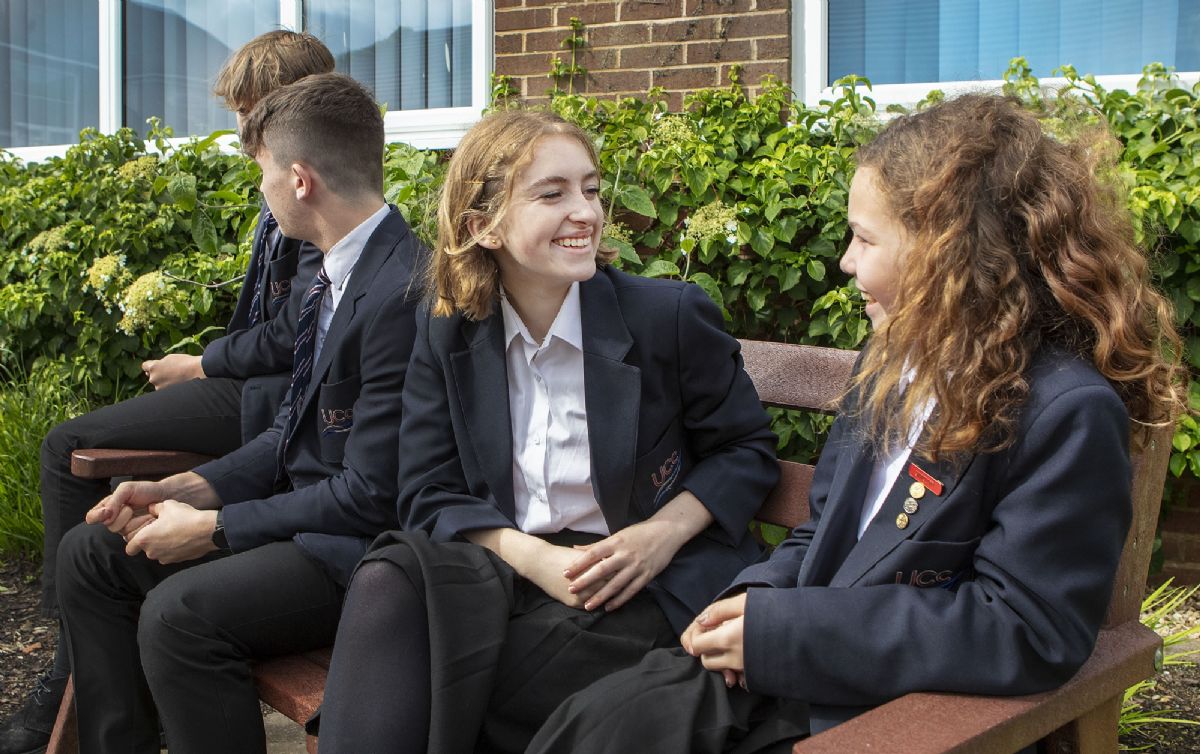Science
THE SCIENCE CURRICULUM AT UCC

At Uppingham Community College the Science curriculum across key stage 3 and 4 provides students with the opportunity to develop their scientific knowledge and conceptual understanding through the specific disciplines of biology, chemistry and physics. It enables them to develop their understanding of the nature, processes and methods of science through different types of scientific enquiries that help them to answer scientific questions about the world around them. This then equips them with the scientific skills required to understand the uses and implications of science today and in the future. This and future generations will be tasked with finding solutions to the problems of a rapidly changing climate, increasing demand for finite resources and a decline in biodiversity.
Below are three examples of this in practice, one from each science discipline:
Knowledge: When studying forces the curriculum will cover facts about balanced and unbalanced forces, students will calculate resultant force and explain how this affects the motion of an object. They will study distance time graphs and velocity time graphs.
Understanding: Students will apply this knowledge to predicting how the motion of an object will change when the forces on it change. For example, explaining how the changing forces acting on a sky diver affect the velocity and representing this journey as a velocity time graph.
Skills: Calculating resultant force, interpreting and drawing force diagrams, plotting and interpreting graphs, calculating acceleration using formula or from a velocity time graph.
Knowledge: When studying separating mixtures, they will cover facts about the different separation techniques including filtration, distillation, evaporation and chromatography. They will learn that the substances that make up a mixture have different physical properties that can be used to separate them.
Understanding: Students will apply this knowledge by choosing the most suitable methods to separate out a mixture of substances, they will be able to justify their choice based on their knowledge of the properties of the substances.
Skills: Follow instructions to carry out practical techniques, make accurate observations and record results.
Knowledge: When studying photosynthesis, they will cover how the ideas about how plants obtain the things they need to grow have changed over time. They will find out that plants use energy from light, carbon dioxide and water to make glucose and oxygen. They will learn how plants are adapted to obtain the resources they need. They will investigate the factors that affect the rate of photosynthesis and find out how plants use the glucose they make.
Understanding: Students will apply this knowledge by suggesting how particular conditions could affect plant growth. They will be able to explain how farmers could manipulate the conditions in which they grow plants to maximise yield and why other organisms are dependent on photosynthesis.
Skills: Plot and interpret graphs, use word equations to describe photosynthesis, carry out investigations collect and interpret results.



